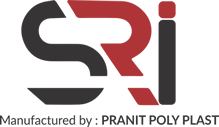Automobiles
Reputation. Respect. Result.
Automobiles
The modern automobile is a complex technical system employing subsystems with specific design functions. Some of these consist of thousands of component parts that have evolved from breakthroughs in existing technology or from new technologies such as electronic computers, high-strength plastics, and new alloys of steel and nonferrous metals. Some subsystems have come about as a result of factors such as air pollution, safety legislation, and competition between manufacturers throughout the world.
PPCP Wide Range
PPCP (Polypropylene Copolymer) is a thermoplastic material that is popular in manufacturing due to its high strength, durability, and chemical resistance. It is a versatile material that is used in a wide range of industrial and consumer applications, such as automotive components, household goods, food and beverage containers, and more.
Some Properties
- High impact resistance: PPCP is highly resistant to impact, making it an ideal choice for products that require durability and toughness.
- Chemical resistance: PPCP is highly resistant to many chemicals, making it suitable for use in a variety of industrial applications, such as chemical processing.
- Heat resistance: PPCP has good heat resistance, making it suitable for products that are exposed to high temperatures, such as automotive components or kitchen appliances.
- Dimensional stability: PPCP has excellent dimensional stability, meaning it maintains its shape and size even when exposed to changes in temperature and humidity, making it a reliable material for various applications.


ABS (Acrylonitrile butadiene styrene)
Acrylonitrile butadiene styrene, or ABS, is a common thermoplastic used to make light, rigid, molded products such as pipe, automotive body parts, wheel covers, enclosures, and protective head gear. ABS is an amorphous polymer. It is made of three monomers: acrylonitrile, butadiene, and styrene. Used in electronic housings, auto parts, etc.
The acrylonitrile in ABS provides chemical and thermal stability, while the butadiene adds toughness and strength. The styrene gives the finished polymer a nice, glossy finish. ABS has a low melting point, which enables its easy use in the injection moulding process and 3D printing. It also has high tensile strength and is very resistant to physical impacts and chemical corrosion, which allow the finished plastic to withstand heavy use and adverse environmental conditions. ABS can be easily moulded, sanded and shaped, while its glossy surface finish is highly compatible with a wider range of paints and glues.
Even though ABS plastics are used largely for mechanical purposes, they also have electrical properties that are fairly constant over a wide range of frequencies. These properties are little affected by temperature and atmospheric humidity in the acceptable operating range of temperatures.
ABS High Impact
ABS High Impact is a versatile polymer for different sectors. The most important characteristic of ABS is its great toughness, even at low temperature (remaining tough even at -40ºC). It is hard and rigid. It has acceptable chemical resistance, low water absorption, good dimensional stability, high resistance to temperature and abrasion, and can be easily coated.
The final properties will be influenced to some extent by the conditions under which the material is processed to the final product. For example, molding at a high temperature improves the gloss and heat resistance of the product whereas the highest impact resistance and strength are obtained by molding at low temperature. Fibers (usually glass fibers) and additives can be mixed in the resin pellets to make the final product strong and raise the maximum operating temperature as high as 80 °C (176 °F).
In our plastic recycling plant we have the machinery and capacity to produce ABS | High Impact in different colors and with different characteristics of flow and impact and / or loads.


PP High Impact
PP Copolymer designed for greater processable properties and mould filled, created with high fluidity and the capacity for integration in applications with higher demands in the form of the piece such as nerve guides, windows or spaces.The impact copolymers can be transformed by different processing technologies like injection molding , thermoforming.
Used in the production of high-stiffness, high transparency packaging film. It is also widely used in the production of printing and laminated film, Matt film, pearlized film, synthetic paper, cigarette film, etc. It is also widely used as the packing for clothing, stationery, food, medicine, cosmetics, textiles, etc.
Due to their broad range of properties, impact copolymers from LyondellBasell are used in packaging, houseware, film, and pipe applications, as well as in the automotive and electrical segments.
Nylon GF
Glass-filled nylon offers seven main advantages over other materials, including unfilled nylon. Enhanced Strength and Stiffness: Glass-filled nylon's higher tensile strength and modulus of elasticity make it suitable for applications that require structural integrity and load-bearing.
Glass-filled nylon’s higher tensile strength and modulus of elasticity make it suitable for applications that require structural integrity and load-bearing. The addition of glass fibers reduces nylon’s coefficient of thermal expansion for greater dimensional stability. In other words, glass-filled nylon is less prone to warping, shrinking, or expansion with temperature variations.


